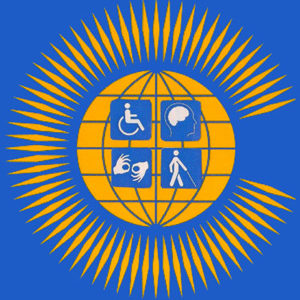This is in response to Richard Rieser’s letter of 9 June.
Dear Mr Rieser,
Thank you for your letters of 9 June to the Prime Minister and Foreign Secretary regarding the impact of COVID-19 on people with disabilities. I have been asked to reply on their behalf as the Minister responsible for the Commonwealth.
I would like to firstly thank you for sharing of the experiences of COVID-19 of Disabled People’s Organisations across the Commonwealth. You are right to emphasise the global threat that the crisis still holds for us all and the disproportionate impact the pandemic is having on people with disabilities
There has never been a more critical and challenging time in recent memory, for the international community to work together to respond to the deep global health and economic crisis. The poorest and most fragile countries have limited tools to respond to the economic impacts. As a force for good in the world, the UK is playing a major role in the global response to COVID-19, including through our development programmes, key international organisations and our wide diplomatic and development networks.
As set out in the Commonwealth Charter, the UK is committed to upholding the human rights of all, including people with disabilities. The UK is deeply concerned about the significant impact of this crisis on people with disabilities and is continuing to put the poorest and most marginalised at the heart of our international response.
We recognise that people with disabilities risk being disproportionately affected by COVID-19’s social and economic impacts. Existing barriers faced by people with disabilities are also likely to be intensified by the crisis.
We are therefore engaging internationally to push for greater explicit consideration of, and support to, people with disabilities across the COVID-19 response and continue to work closely with Commonwealth member states and other partners. On 28 May, I briefed Commonwealth High Commissioners on the UK’s international response to COVID-19. Attendees shared their views on the impact of the pandemic both in the UK
and in their home countries. In that forum, it was also expressed that particular focus should be put on support for vulnerable groups.
The UK also played a leading role in developing the ambitious G20 action plan and agreement to suspend up to $12 billion of debt payments for the 77 poorest countries in the world. We have supported the World Bank Group and Regional Development Banks to make $200 billion of financing available over fifteen months to help developing countries to mitigate the impact of the pandemic.
The decision on whether to bring forward the next summit lies with the current G20 president, Saudi Arabia. The UK is working closely with the Saudi presidency in coordinating G20 action, through the extensive action plan, as we recognise the important role of the G20 in our long-term economic response to COVID-19. In the lead up to the G20 Finance Ministers and Central Bank Governors meeting on 18 July, the Government is considering policy areas to reflect in an updated G20 Action Plan
that takes account of the evolving challenges and lays the foundations for a sustainable and inclusive global economic recovery.
Finally, I agree that we need to use the recovery from the pandemic as an opportunity to build back better globally, emphasising the importance of creating fairer, more sustainable and more resilient societies. There is no doubt that the support for human rights of disabled and marginalised people will play a large role in that.
Yours sincerely,
LORD (TARIQ) AHMAD OF WIMBLEDON
Minister of State for South Asia and the Commonwealth
Prime Minister’s Special Representative on Preventing Sexual Violence in Conflict
